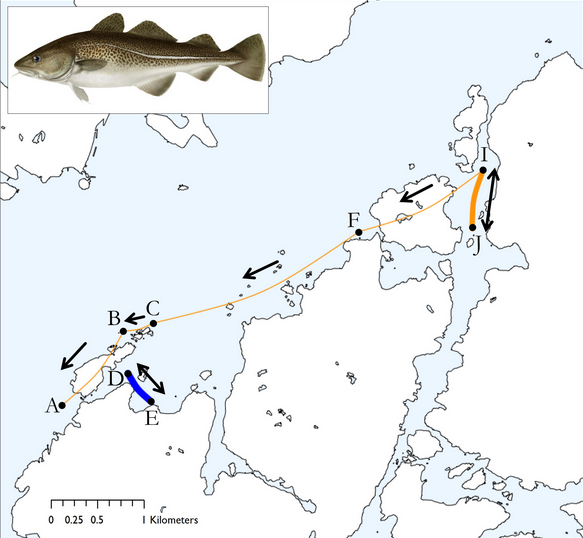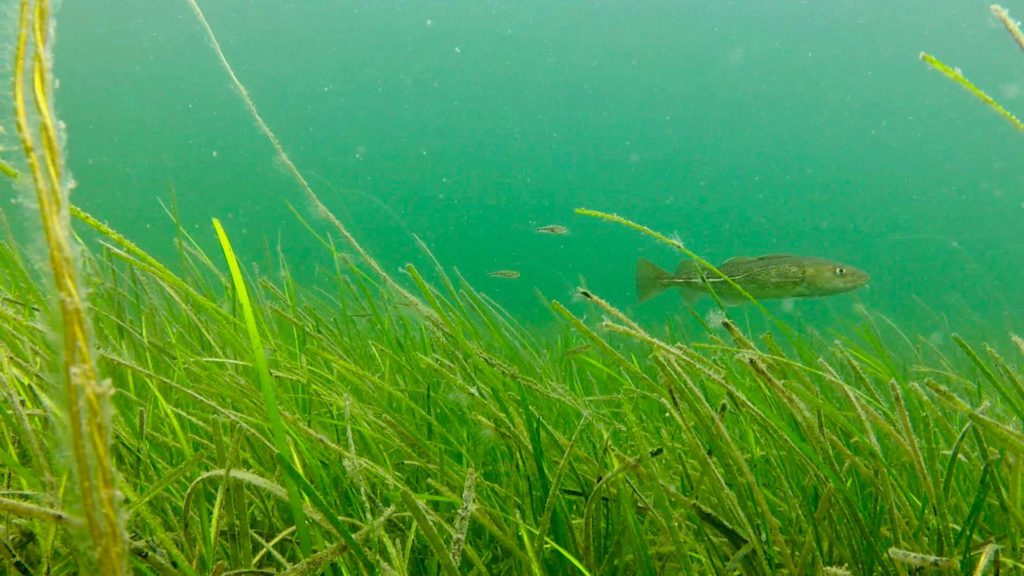A new study in Ecology and Evolution has been published focusing on the movement patterns of Atlantic cod in collaboration with Stockholm University, Zoological Society of London and the County Administrative Board Västra Götaland.
The Atlantic cod is classed as vulnerable and under extreme pressure from fishing. More information is needed about the ecology and behaviour of this species for sustainable marine stewardship. This project used acoustic telemetry (a practiced method of fish tracking) to discover more about cod movement patterns in a fjord on the Swedish west coast.
Thirty-nine juvenile and sub-adult cod were tagged over 5 months and their movements were explored using network analysis. Some individuals showed very stationary behaviour while others showed more movement linking shallow-water areas and helping to understanding habitat connectivity. When comparing these movement data with environmental variables, sea surface temperate was shown to be driving the overall movements over time.
This study provides new knowledge regarding inshore movement dynamics of Atlantic cod that use complex, coastal fjord systems. The findings show that connectivity, seasonal patterns in particular, should be carefully considered when selecting conservation areas to promote marine stewardship.

Atlantic cod movement patterns

Atlantic cod swimming over eelgrass
Reference:
Staveley TAB, Jacoby DMP, Perry D, van der Meijs F, Lagenfelt I, Cremle M, Gullström M. Sea surface temperature dictates movement and habitat connectivity of Atlantic cod in a coastal fjord system. Ecol Evol. 2019;9:9076–9086.